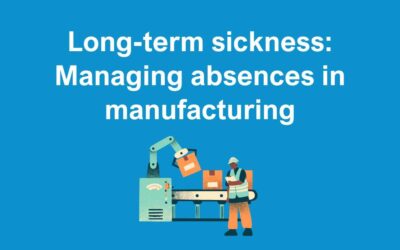In today’s fast-paced and constantly evolving business world, upskilling has become a necessity for both employees and employers. The importance of giving staff new skills cannot be overstated, as it not only benefits individual employees but also has a significant impact on the success of the company. One of the key ways managers can ensure their employees skills are up to date is by providing the necessary training and resources.
The Business, Energy and Industrial Strategy Committee recently issued a new report in hopes of encouraging the Government to invest in skills and businesses to “kickstart growth”. The report stated: ”There is a need to raise not just the basic skill levels of young people entering the workforce but also their digital and “green” skills, both of which contribute to enhancing productivity in the modern digitalised economy.”
We also recently attended the CIPD Annual Conference in Edinburgh and one of the main topics was around the changing working environment and the importance of upskilling employees to help them and your business adapt and thrive during this time of change.
The main discussions during this event were around the UK target to Net Zero, the increasing demand for flexible working, and the rapid development of technology and artificial intelligence. As an employer, it’s important to be a step ahead. In addition, it’s time to provide employees with the right training to take your business to the next level.
Upskilling Meaning
Upskilling refers to the process of acquiring new skills, knowledge, or qualifications that are relevant to one’s current or future job roles. This can involve learning new technologies, mastering new techniques or tools. It can also include gaining additional education or certification in a particular field.
This can help individuals improve their job performance, advance their careers, and increase their value to their employers. It is an important aspect of professional development and a way for individuals and companies to remain competitive in a constantly evolving job market.
Here are the main benefits of giving employees new and valuable skills:
Upskilling employees can help improve productivity and efficiency
When employees acquire new skills and knowledge, they become more competent and confident in their abilities. This, in turn, allows them to complete their tasks more effectively and efficiently. As a result, the company benefits from higher quality work and increased productivity, leading to better business outcomes.
Retain employees
When employees feel that their employer is invested in their professional development, they are more likely to feel valued and appreciated. This can lead to higher job satisfaction and increased loyalty, reducing the likelihood of turnover. Furthermore, employees who feel they are growing and developing in their roles are more likely to stay engaged and motivated. This can translate to improved performance.
Remain Competitive
As industries and technologies continue to evolve, companies need to adapt and stay ahead of the curve to remain competitive. By upskilling your employees, you can ensure that your company has the necessary skills and knowledge to remain at the forefront of the industry. This can lead to better business outcomes, increased revenue, and an enhanced reputation.
Create a culture of learning and growth within a company
When managers prioritise employee training, they send a message that learning and development are important values within the company. This can lead to a more engaged and motivated workforce. This is due to employees feel that their professional development is valued and encouraged.
What Type of Training Should Businesses Focus on?
Considering the current rapid period of change in the business environment around flexible working, sustainability, and artificial intelligence, we recommend upskilling employees with artificial intelligence, digital skills, any skills they may need to succeed in a net zero world, and management training.
Our team offer tailored management training to cater to every business. You can find out more about this service on our website.
In Conclusion
In conclusion, upskilling employees is a crucial part of ensuring the success of a company. By providing training and resources to your employees, managers can improve productivity and efficiency, retain employees, remain competitive, and create a culture of learning and growth. As industries continue to evolve and change, it is essential to prioritise upskilling to stay ahead of the curve and ensure continued success.
Contact Us
If you would like support from our HR experts to create a plan on upskilling employees, contact us on 01383 668 178. You can also email us below.







